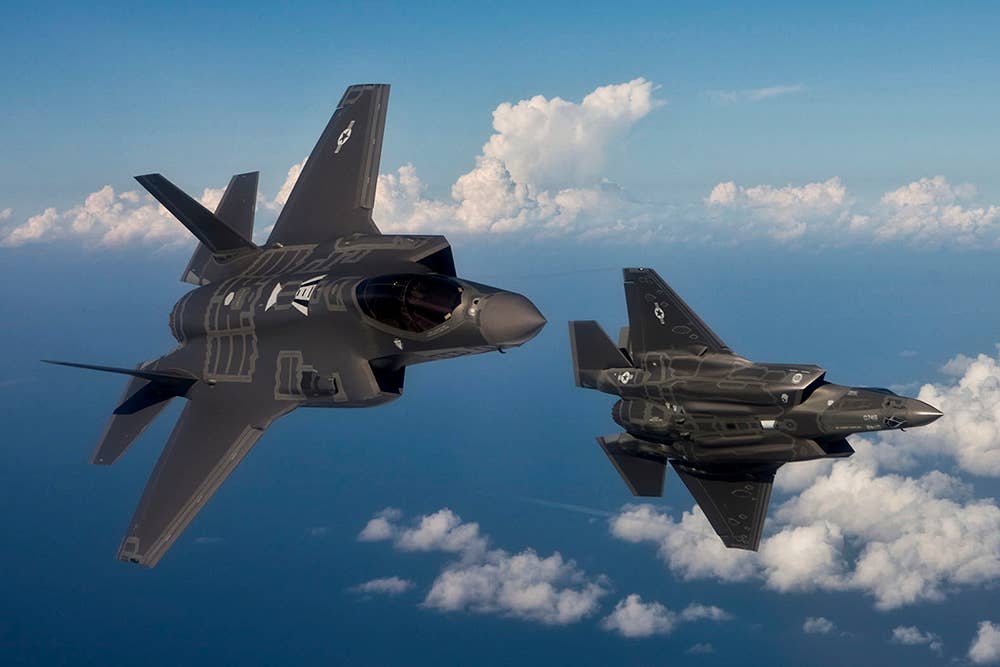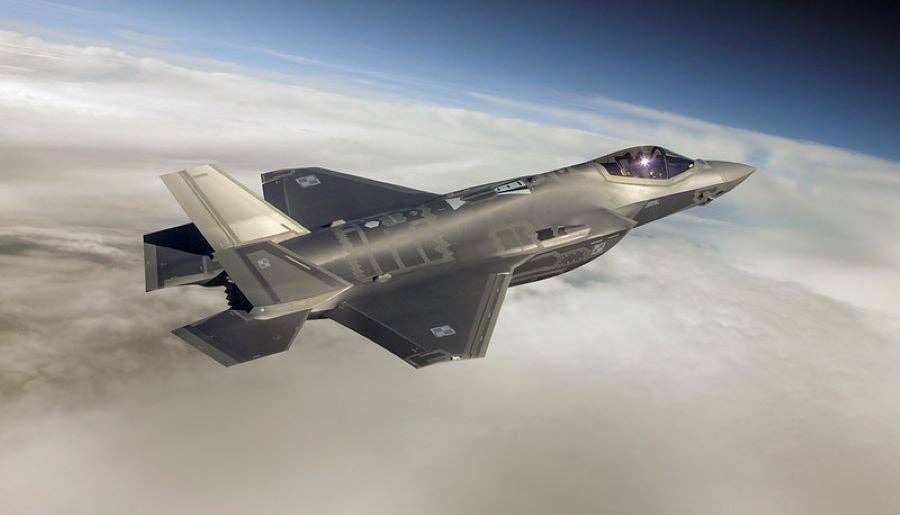UAE Says It Will Suspend Talks to Purchase F-35s from US
Security concerns regarding China reportedly are threatening to derail the multibillion dollar agreement.

Lockheed Martin’s F-35 Lightning II is among the most technologically sophisticated fighter jets in the world. From the U.S. Air Force
The United Arab Emirates on Tuesday said it “will suspend” talks with the U.S. to buy sophisticated F-35 fighter jets, military drones, and other weapons.
“The UAE has informed the U.S. that it will suspend discussions to acquire the F-35. Technical requirements, sovereign operational restrictions, and cost/benefit analysis led to the re-assessment,” said a statement from a UAE official to FLYING. “The UAE and U.S. were working toward an understanding that would address mutual defense security conditions for the acquisition.”
“The UAE has informed the U.S. that it will suspend discussions to acquire the F-35."
UAE official to FLYING in a statement
The statement follows a report in Tuesday’s Wall Street Journal that the UAE was threatening to pull out of the deal, which involves 50 advanced, fifth-generation Lightning II fighters, built by Lockheed Martin.
“The U.S. remains the UAE’s preferred provider for advanced defense requirements and discussions for the F-35 may be re-opened in the future,” the UAE statement said.
The journal report, citing unnamed U.S. officials, said the UAE told Washington it planned to cancel the deal because the U.S. is pushing the UAE to follow strict security rules to protect sophisticated U.S. technology from China.
The Biden administration was still committed to the deal on Tuesday, although talks are continuing, according to a U.S. Department of State spokesperson.
“We continue consultations to ensure that we have a clear, mutual understanding of Emirati obligations and actions before, during, and after delivery,” the spokesperson told FLYING in a statement. “We are hopeful that we can work through any outstanding issues, and we look forward to the U.S.-UAE Joint Military Dialogue later this week.”
Lockheed Martin referred all questions on the matter to the U.S. government and the UAE.
Political Tensions
Political tensions in the Persian Gulf have grown significantly as China has gained more influence in the volatile region. The UAE’s economic ties to China have also strengthened in recent decades.
The UAE decision represents an apparent about face by the longtime U.S. ally. In November, the Associated Press quoted a senior American official who said the U.S. was “fully committed” to the proposed sale, although the Biden administration was slowing the deal down.
The deal took shape during the Trump administration around the same time that the UAE first officially recognized its neighbor, the state of Israel. Israel has been flying F-35s since 2016.
Other nations are allowed to purchase F-35s from the U.S. under a special program available only to close allies. In addition to Israel, countries in the program include the United Kingdom, Italy, Netherlands, Australia, Norway, Denmark, and Canada, according to Lockheed Martin. Japan, South Korea, Poland, Belgium, and Singapore are also part of the program.
Lockheed Martin describes the F-35 as “the most lethal, survivable, and connected fighter jet in the world.” What sets the jet apart is its “combination of very low observable stealth, advanced sensors, information fusion, and network connectivity—all packaged within a supersonic, long range, highly maneuverable fighter.” F-35 pilots wear helmets that include a display system showing the full battlespace, which provides unprecedented situational awareness.

Subscribe to Our Newsletter
Get the latest FLYING stories delivered directly to your inbox






